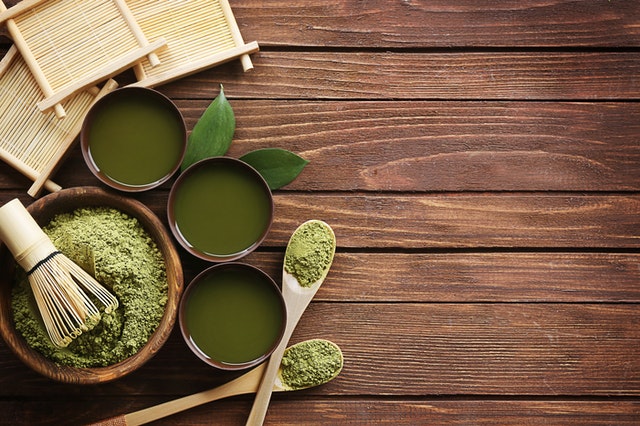Make Time For Green Tea:
I recently read an interesting article about caffeine addiction which has inspired this blog post about green tea.
It does seem quite likely that most people who drink tea, coffee and fizzy drinks are addicted to caffeine without even realising it. Needing a tea or coffee to get going in the morning or suffering from poor sleep could all be symptoms of caffeine addiction.
If you think you might be consuming too much caffeine, a great way to reduce your caffeine consumption would be to replace conventional coffee and black tea with green tea. Green tea is delicious (although you may need to acquire the taste so if you are not keen at first persevere) and low in caffeine.
One cup of Green Tea contains about 35-80mg of caffeine, which is slightly less than black tea, but a lot less than coffee which has 100-400mg in the same size cup of coffee. That’s a useful caffeine reduction if you can switch from coffee. However even if you don’t have a caffeine addiction it is worth drinking green tea for its beneficial effects on health.
The health benefits are down to the lack of processing needed to make green tea. Conventional black and green tea come from the same plant, but green tea has not undergone the same withering and oxidation process used to make black tea. This reduced processing allows green tea to retain a higher amount of protective polyphenols (flavonoids) which act as powerful antioxidants. Antioxidants are known to protect the body against disease and are an important part of a healthy diet.
When making your green tea allow the boiled water to cool slightly before pouring onto tea leaves to help retain antioxidants. Allow to steep for 2 to 3 minutes tea – steeping for too long will make the tea taste very bitter due to releasing tannins. Unlike polyphenols tannins are not beneficial for health and can hinder digestion and metabolism. I advise to always buy organic and fairly traded green tea.

Health Benefits of Green tea
I’ve listed the health benefits of green tea below – it has long been used as a medicinal herb in China and India and can be taken therapeutically.
- Antioxidant
Free radicals are a by-product of normal cell function (but also are caused by poor diet and smoking). They can accelerate aging and cause other damage in the body. Green tea is a rich source of very potent free radical scavenging polyphenols – epigallocatechin gallate and gallic acid. In addition, green tea has been shown to raise the activity of glutathione peroxidase (an antioxidant that can stabilise free radicals and render them harmless) and other antioxidant enzymes in the small intestine, liver and lungs
- Anti-microbial
Evidence suggests that green tea possesses a potent activity against harmful bacteria and viruses, most likely due to the direct effects of catechins and the indirect effect of the raised levels of glutathione.
- Anti-allergic
Various flavonoids found in green tea have been shown to inhibit the release of histamine, a major chemical mediator in allergic reactions.
- Favourable effects on gene expression
Studies have shown that various behaviours or environment can trigger chemical modifications in the body that affect which genes are turned on and off, the study of which is known as Epigenetics. Drinking green tea is one such behaviour that can favourably affect the expression of our genes and therefore prevent or lower risk of health problems such as cancers and cardiovascular disease.
- Thermogenic
Green tea contains compounds such as theophylline and caffeine, both of which have been shown to enhance the rate of fat metabolism. Since the greater the rate of fat metabolism the more free radicals produced, green tea’s antioxidant properties are especially useful. (Although coffee contains higher levels of caffeine, it also contains potentially harmful roasted hydrocarbons, which are potent free radical sources).
Decaffeinated green tea will work effectively for 1-4 but less so for the enhancement of fat metabolism. However if you purchase decaffeinated tea of any sort it is important to choose organic to avoid teas that have been decaffeinated by a potentially harmful chemical process.
You may also like to try Matcha tea which is derived from the same plant as green and black tea (Camellia sinensis) but is grown and harvested differently. It has even greater benefits of green tea and also can be made into a delicious Matcha Latte using oat milk:
For maximum therapeutic benefits or if you are particularly sensitive to caffeine you may like to use a caffeine free green tea supplement. There are a number of green tea supplements and teas available from the Natural Dispensary – see links below. Up to 15% discount for clients only – code available on request.
Green_Tea_Polyphenol_EGCG_50_90
Organic_Imperial_Matcha_Green_Tea
Japanese_Organic_Matcha_Green_Tea